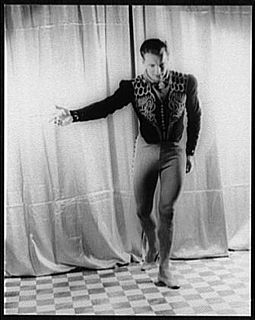Цитата Стивена Джея Гулда
Люди — существа рассказывающие истории. Нам нравятся истории, которые куда-то ведут, и поэтому нам нравятся тренды — потому что тренды — это вещи, которые либо улучшаются, либо ухудшаются, поэтому мы можем либо радоваться, либо сокрушаться. Но мы ошибочно изображаем многие вещи как тенденции, движущиеся в каком-то направлении. Мы берем «полный дом» вариации в системе и пытаемся представить ее в виде одного числа, тогда как на самом деле мы должны изучать вариацию, когда она расширяется и сжимается. Если вы посмотрите на историю вариации во всей ее сложности, то увидите, что тренда нет.
Темы цитат
Потому что
лучшая
сложность
Контракты
Существа
Изображают
направление
Выполнение
любого
Факт
Полный
аншлаг
Стань
лучше
Иди
История
Дом
На самом деле
Плачь
Как
Смотри
Многие
переезжают
Двигаясь в
количестве
Люди
Радуются
Представляют
Видят
Должны
одиноки
Где
-то
Истории
Рассказывание
Система
обучения Возьмите
Историю
Тогда
Итак
Вещи
Тенденции
тенденций Попробуйте
вариант
хуже
Связанные цитаты
Тренды засасывают вас в любой точке мира, шаблоны, которые вы даже не видите. Это очень просто. Посмотрите на Уолл-стрит — посмотрите на любую спортивную команду в мире — там есть тенденции. Посмотрите на упражнения. Ничего, кроме шаблонов и тенденций, и это то, что я начал видеть. Как стая птиц, летящих в одном направлении.
Я, по крайней мере, для меня, я никогда не смотрю на тренды. Я ищу только то, что привлекает мое внимание в то время, и редко оглядываюсь назад, чтобы попытаться собрать воедино тенденции или сказать, что такая тенденция важна. Для меня это индивидуальное самовыражение, и если вы вернетесь назад и просмотрите архивы, вы можете обнаружить, что некоторые вещи становятся тенденциями, но это не то, что меня особенно интересует.
Половое размножение существует исключительно как средство борьбы с паразитами. Путем смешения мужских и женских генов половой акт производит потомство, не совсем похожее ни на самца, ни на самку, что делает каждое поколение отличным от предыдущего и представляет движущуюся мишень для злоумышленников, намеревающихся скомпрометировать эту систему. ... Даже при таком варианте паразиты продолжают представлять угрозу... и паразитизм развивается и распространяется по любой системе, а не только по живым существам. Чем меньше вариаций в системе, тем легче эволюционируют паразиты, чтобы заразить ее.
Что меня огорчает в моде, так это то, что все ищут тренды. Тренд — это одно. Вне времени — другое. За 20 лет я видел так много трендов. Меня огорчает, когда люди выбирают тренд, а не качество или видение. Или когда люди носят что-то настолько простое, просто чтобы убедиться, что их считают крутыми, например, белую футболку.




































